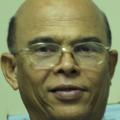
Aung San Suu Kyi, Chairperson of the National League for Democracy and Lawmaker of Lower House of Burma by http://en.wikipedia.org/wiki/Aung_San_Suu_Kyi
Chairperson of the National League for Democracy and lawmaker of the Lower house of Burma
Parliamentarians from Burma's ruling party markedly started on 15 March the first step concerning the feasible revision of the constitution which was drawn under previous military junta and intentionally vetoes the opposition leader Aung San Suu Kyi from the presidency.
The constitution says that candidates whose spouses or offspring are citizens of a foreign country shall not run in the presidential and vice-presidential selection since they are disqualified. As Suu Kyi's late husband Michael Aris and their two adult sons are British, people can easily see such clauses in the bill are targeted for the opposition leader.
The worst term is that the draft bill has been endorsed following a rigged and undemocratic 2008 referendum. Another ugly point is the constitution also set aside 25% of parliamentary seats for military personnel chosen by the armed forces chief.
As mentioned in the Eleven Media Group's Sunday news, the revision proposal was submitted as an important issue to the lower house by Thura Aye Myint, vice chairman of the Union Solidarity and Development Party (USDP), and it was approved without any disagreement. Military appointed parliamentarians also voted in support of the proposal.
"I believe that the 2008 Constitution now requires reviewing according to the current situation of the country though it was written with a good cause for the future of our country," Thura Aye Myint said at the parliament.
"A committee or commission will be formed comprising of law experts, academics and professionals," he added.
Since taking office in March 2011, Thein Sein has introduced a series of remarkable political and economic reforms after almost five decades of authoritarian rule by military dictatorship. A major reform was giving political space for Suu Kyi's party so as to take part in the by-electoral process through which the NLD won 43 of 44 seats last year.
Although USDP's MPs submitted a constitutional amendment, it is not expected to meet Suu Kyi's dream for presidency; the presentation sends a warning sign that the government party is pragmatic and most likely willing to deal with hot ethnic bids before the 2015 general election.
Burma's current Constitution, approved in a May 2008 referendum, is inundated with misleading principles. It says the country must be united under one military command. To bring the ethnic groups in line with this term, the previous military regime has ordered all armed rebel groups to become part of Burma's border guard force ahead of the 2010 election.
Ethnic minorities have been suffering through five decades of brutal military operations in the name of national unity. Attacks on these rural civilians continue on a regular basis. There is a constant demand from Burma's ethnic groups to enjoy equal political, social and economic rights. The Constitution must guarantee the rights of self-determination and of equal representation for every ethnic group in the Parliament. It is also required to include provisions against racial discrimination.
At the June-2004 National Convention, 13 ceasefire groups submitted a political proposal demanding equal access to the plenary session. But the convention's convening committee dismissed the proposal as improper. When the 2008 Constitution came out, none of the political points proposed by the ethnic representatives were included.
Ethnic revolutionary groups in the five states which are generally situated along China and Thailand borders have been looking for increased freedom from successive Burmese governments since the country's independence in 1948.
So far, no one knows whether the incumbent regime has genuine intention to provide autonomy toward ethnic minorities with the aim of making national reconciliation. No opinion of the ethnic representatives was taken into account during the national convention (1993 -- 2007) in which the principles of the 2008 constitution were laid down.
The junta has taken 14 years to draft the current constitution which was boycotted by opposition parties, the National League for Democracy (NLD) and others ethnic democratic parties who gained a landslide victory in the 1990 elections.
Actually, the national convention was filled with the handpicked the delegates. So, most citizens consider the constitution was not drafted by true representatives correspondingly. During the National Convention, the military junta also banned free discussion and rejected the demand of 13 ethnic ceasefire groups for power sharing between the state government and the central government.
On Monday, Aye Aye Win of Associated Press said, a lawmaker from Suu Kyi's NLD party, Phyo Min Thein, suggested the ruling party constitutional amendment proposal was meant to reward Suu Kyi for her moderate position in a dispute over the Letpadaung copper-mine in upper Burma.
(Note: You can view every article as one long page if you sign up as an Advocate Member, or higher).





